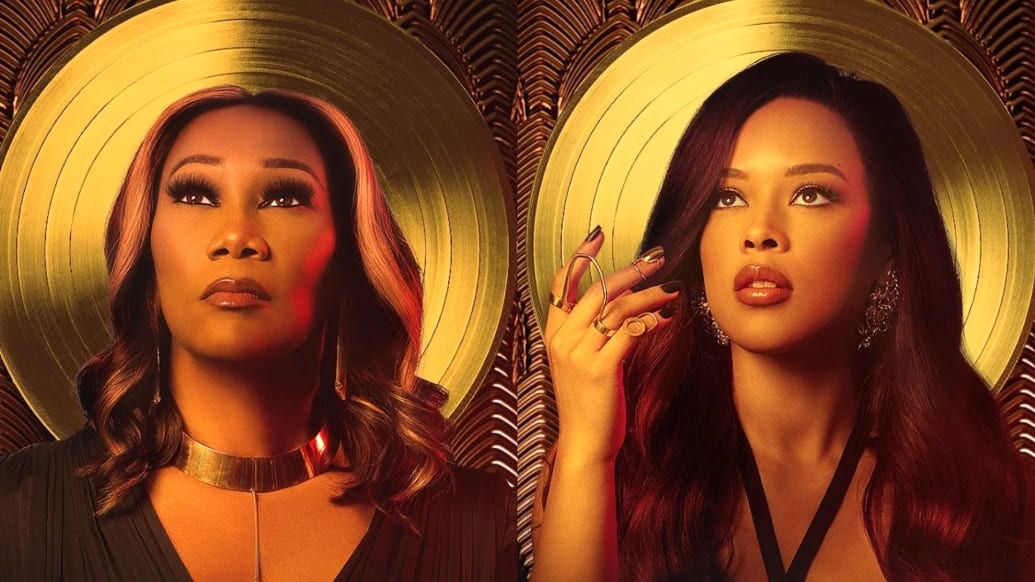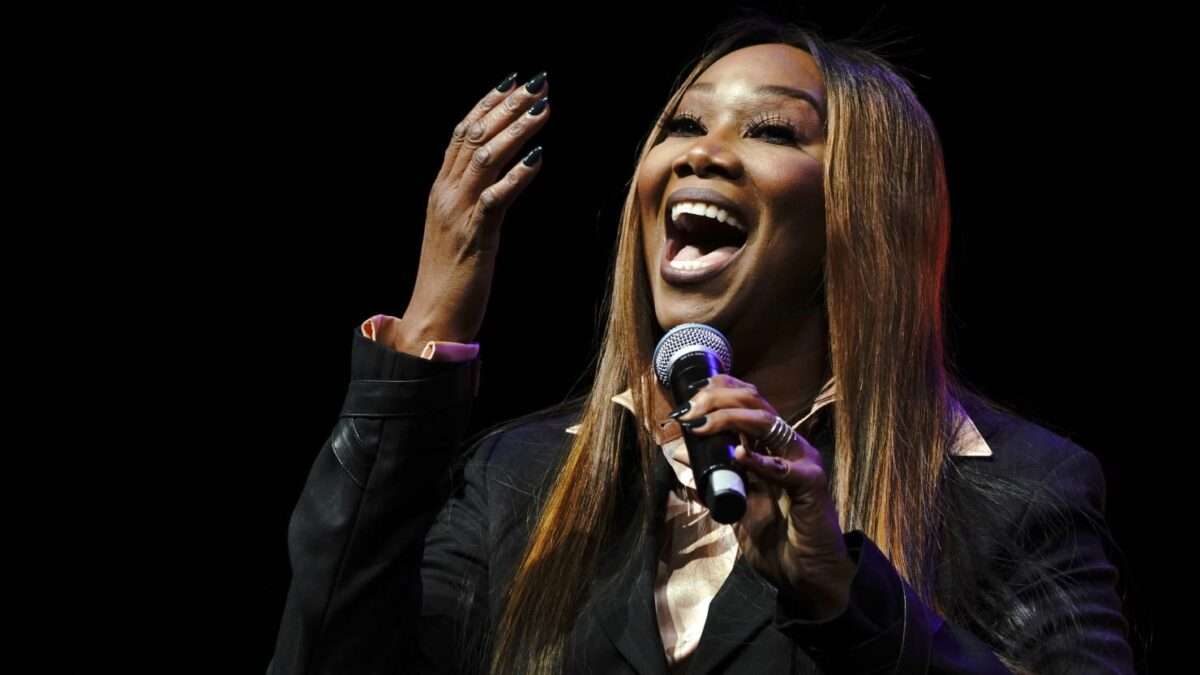If you grew up in a Black Christian household in the ’90 and 2000s—or simply one that played gospel records—you know Yolanda Adams is one of the most prolific and influential voices of the genre.
Widely considered the Queen of Contemporary Gospel, the 61-year-old Houston native has sustained her silky soprano register throughout her illustrious career, beginning as a member of the Southeast Inspirational Choir at just 13 years old, releasing 13 combined studio and live albums, and remaining a go-to performer for televised tributes and other major events, including Super Bowl LIV where she sang “America the Beautiful.” Her pen is still just as sharp, as she recently received a Tony Award nomination for—of all productions—SpongeBob SquarePants: The Broadway Musical.
While the Grammy winner hasn’t released an album in 11 years, she’s remained a mainstay on gospel and R&B radio (and at most Black gatherings) with hits like “Victory,” “The Battle Is the Lord’s,” and the Jimmy Jam and Terry Lewis-produced tunes “Open My Heart” and “Be Blessed,” among others. Adams tells The Daily Beast that she’s been working on music with the legendary R&B duo that she plans to release soon.
Until then, fans of Adams can catch her on BET+ starring in the new drama Kingdom Business. In the series, executive produced by fellow gospel legend Kirk Franklin and Holly Carter, Adams plays Denita Jordan, a competitive gospel diva obsessed with awards and producing hits at whatever cost. Her status as a top-selling artist is threatened when a stripper named Rebl, played by Empire actress (and notable “Bad Blood” music video cameo) Serayah, explodes on the gospel scene after a video of her singing at her best friend’s funeral goes viral. The multigenerational drama reveals a dark underbelly to the gospel music industry filled with sex scandals, crime and cutthroat competition, the latter of which Adams says she hasn’t personally experienced herself but has heard about from younger artists.
Adams spoke to The Daily Beast over Zoom about what it was like to embody Denita, her upcoming album, and how she reconciles the industry side of gospel with her ministry.
How did this role come to you?
Well, Dr. Holly Carter and I have known each for years. And she knows my background. And she was like, “We have got to get you on television.” I’m like, “I know, I know.” And there were times when she was like, “Well, I have this reality show.” And I’m like, “I don’t want everybody in my business. But if we get a good series or something like that, call me.” And so it took about three and half years, and we finally found the thing that really, really matched what I wanted to do. I wanted a character that was not so much like me because I wanted to stretch myself and expand my acting chops, so to speak.
How fun was it to dip into the role of Denita? Because I wouldn’t necessarily reduce her to just a villain. But she definitely has some antagonistic qualities.
It was definitely fun to dip into that because people see me on television, and I’m always the nice girl or the preacher or the this or the that. I wanted to be that diva [laughs] that I’m totally not in-person. Because I think what happens is, if you continue to play yourself or play a character like you, you get into a comfort zone. I wanted to be so uncomfortable with this role that I would have to be diligent and focused to make sure that everything I said, and every gesture that I made, would flow with the character. So yeah. I loved it.
Speaking of being out of your comfort zone, were you nervous at all about starring in a project on a secular network and that’s aimed at mature audiences?
Here’s the thing, you know? We can’t make this cookie-cutter kind of thing happen because life is life. And you will have to deal with people who don’t act like you, sound like you, do what you do. And you know, Denita is having a real problem with that. Yeah. But you know, as you get older, you realize times change. And things change. And if God can use you, we can use anybody. I think that people are going to be really, really surprised, but I think they’re going to breathe a sigh of relief that this is a show that actually shows how real relationships and real entanglements and stuff like that work.
“
I think that people are going to be really, really surprised, but I think they’re going to breathe a sigh of relief that this is a show that actually shows how real relationships and real entanglements and stuff like that work.
”
The show also exposes a dark, competitive side to the gospel music industry, which is obviously dramatized to an extent. But I was wondering if that sort of competitiveness and cattiness is something you’ve experienced in your career?
Well, let me say this first. As you say that so eloquently, this is a scripted drama. And so I have not experienced anything like this in my career, because when I was growing up, Shirley Caesar, Albertina Walker, Lynette Hawkins, Tramaine Hawkins—they all embraced me. So I didn’t have that kind of, “Oh my gosh, they don’t like me.” I was loved by them and still am loved by them. And we all express that outwardly.
But I do know of some people who have had the experience that was totally opposite of the experience I had. Number one, I started out in the gospel industry when I was 13 years old. And so by the time I’m 16, I have a hit. And then by the time I’m 18, I have a Billboard hit. So you know, they know me. And then for younger artists to come in and not be able to be embraced, I thought that was just, like, so crazy because I had not experienced that.
Like Denita, you’re also someone who’s been showered with awards and honors—most recently at the Soul Train Awards. Where do you hold those accolades mentally? Because, as a gospel singer, I’m assuming music is a religious practice and act of ministry for you, first and foremost.
That’s a good question. The first thing is, you never enter into gospel music for the money or awards because if you wanted money and awards, you would go into R&B where the awards are. And there are the Stellar Awards. And the Dove Awards are specifically for gospel artists to recognize what they contributed over the last year, year and a half. So you know, I think that should be applauded because we were not represented in some of those other awards. I won the first American Music Award for gospel music. And so if I was the first then that means that Tramaine and folks like surely Caesar had not even been thought of in those spaces. So, you know, I know that we don’t do it for the awards. But it’s nice to get them. And they’re tucked away. They’re not out in front in my house or anything. They’re tucked away so that I know that they’re there. And you know, people ask when they come over. I have to go into my office, get it out. But even the Word says that even a workman is worthy of His hire. So it’s not like it’s juxtaposed to what we do.

dd
Trey Mangum/BET+
I loved seeing that Kirk Franklin was an executive producer on the series because you both are considered these titans of gospel music. And you’ve had some amazing collaborations before. How much of your decision to do the show have to do with him being involved?
Well, like I said before, Holly Davis Carter really is the reason why I’m doing this; but of course, you add in Kirk and that’s a bonus. He’s like my little brother, you know? And I love working with him music-wise, because he’s always thinking. And to work with him as an actor, I had to move away from the doting sister to actually, you know, contending with him. So I had to do some real reaching. But yeah, he’s cool.
So has this role given you the acting bug now? Do you consider this role a new era for your career?
No, this is just a part of who I am. You know, we’ve been in the studio for a while working on a new project. And, you know, of course, COVID happened. And we’re trying to make sure that we give the best product. And then this fell into our laps. And so I’m like, “Well, hey, let’s do all of it.” Yeah. But I think it’s just an added bonus to what I already do.
I was going to ask when we can ask for another album from you. I didn’t realize it had been a decade.
Well, the only thing I can tell you is that Jimmy Jam and Terry Lewis and I have been in the studio for a few months.
Yay! I was hoping you would work with them again.
Yes, I know. We have some amazing work. There’s the song we call “The Hope Song” that we hope makes the world a better place. And that’s all I can say about that. But yes, we are really excited.
About the Author
Churchy Life is a digital media platform, that celebrates being a Christian, living a Christian life, and everything that comes along with it. The fun, the music, the fellowship, the stories - Churchy Life is bringing it all to the forefront in exciting new ways.


